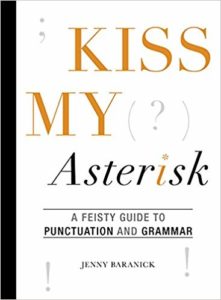What’s in a Name When Blogging For Business

Richard Lederer, author of the book the Joy of Names, has a vested interest in his subject: his own name, he reveals means “powerful estate ruler leather worker”. But, “Must a name mean something?” (as Alice asks Humpty Dumpty).”Of course it must!” is Dumpty’s reply.
In writing to promote a business or practice, using stories about names and nicknames makes for engaging content. In fact, it’s an excellent idea to share anecdotes about people on the team who have earned a complimentary sobriquet.
Just this week, paging through a special edition of People Magazine devoted to The stars of Food Network, I noticed several examples:
- Bobby Flay is “the elder statsman of Food Network”.
- Ina Garten is “the ultimate hostess”.
- Valerie Bernelli is “hot in the kitchen”.
- Duff Goldman is “the designated baker”.
- Guy Fiere is “mayor of Flavortown”
- Alton Brown is “the geek of gastronomy”
As fellow blogger Michael Fortin reminds content writers, getting personal is a huge element in the success of business blogs. Sharing this type of fond moniker, along with an anecdote, adds interest to blog posts. Did you know that Alton Brown once invented a turkey derrick with ropes, pulleys, and a ladder, to facilitate safe and accurate fryer of a Thanksgiving bird?
Storytelling has the power to move from lifeless to life-filled copy, Luana Spinetti writes in webhostingsecreatreveals.net.
The following poem by Charles Delint (included on page 11 of the Lederer book) sums up the astounding power of names and the stories behind those names:
A name can’t begin to encompass the sum of all of her parts,
But that’s the magic of names, isn’t it?
That the complex, contradictory individuals we are
can be called up complete and whole
In another mind through the simple sorcery of a name.
As the People Magazine Food Network issue demonstrates, blending 6 cups of the power of names with 6 cups of intriguing anecdotes and – you’ve got some very delicious business blog content!





Follow us online!